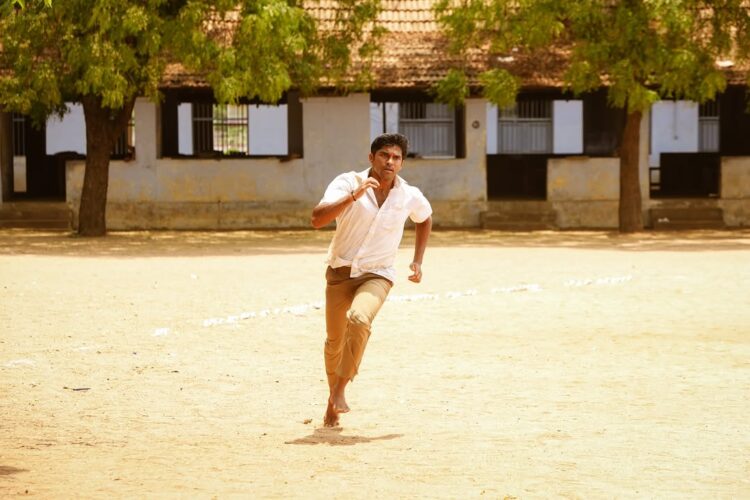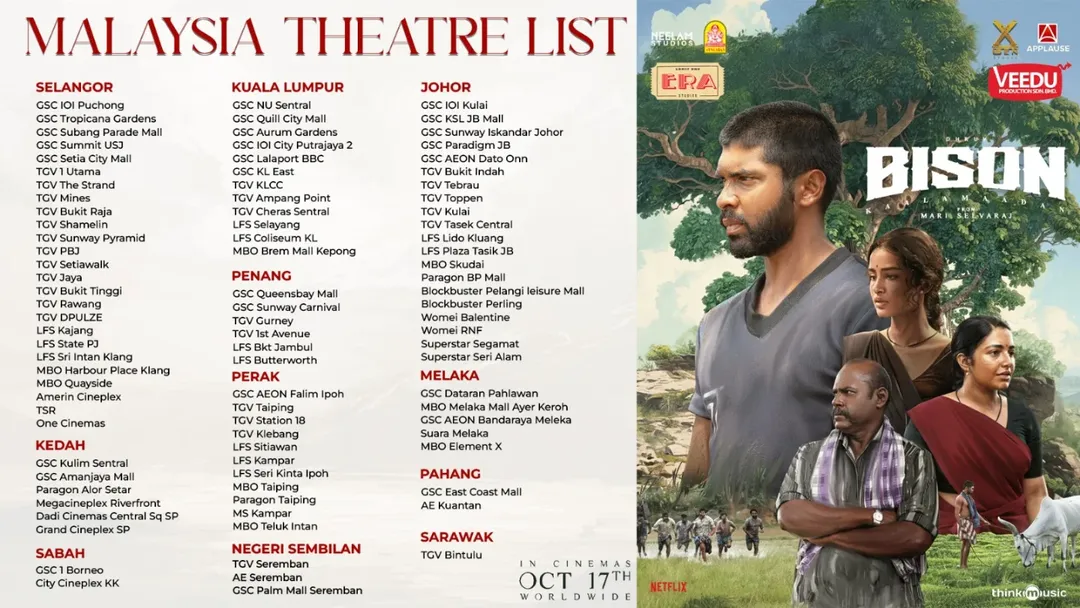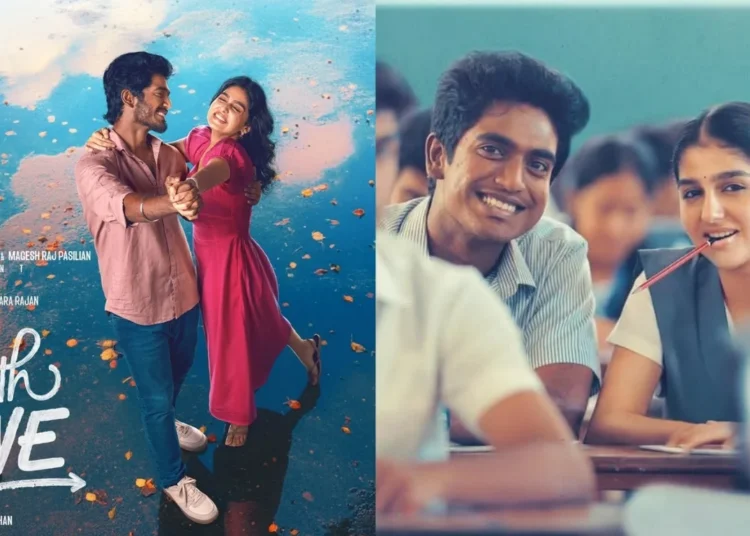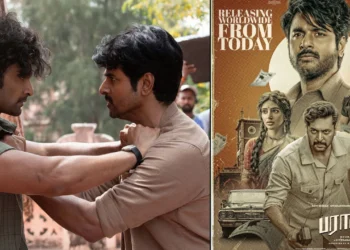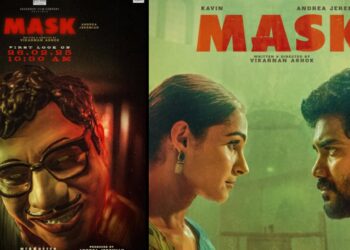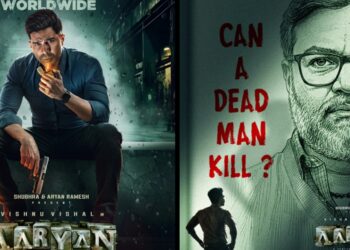Some films walk, some films run. And then there’s Bison Kaalamaadan, it charges. Mari Selvaraj’s latest, Bison isn’t just merely a sports drama, it’s a journey of survival, identity, and spirit. Inspired by the real life of Kabaddi player Manathi Ganesan, the film roars with realism while wearing its heart (and bruises) proudly on it’s sleeve. It’s not your story to watch. It’s about those born beneath the weight of cast, generational pain, and the impossible fight to break free.
So here are five standouts that make Bison Kaalamaadan worth every second of it’s two hour 48 minute run.
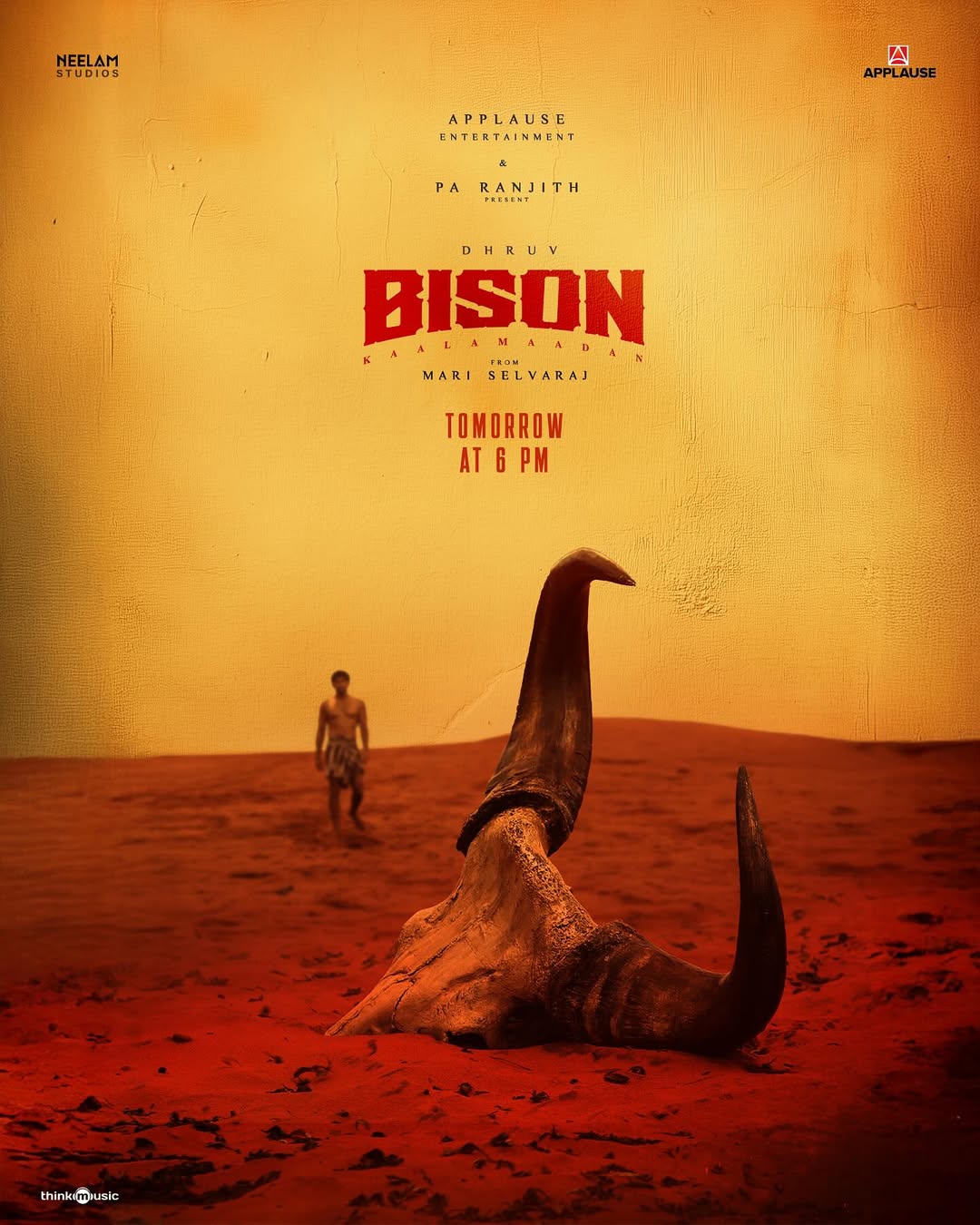
1) Mari Selvaraj’s Unmistakable Vision
You don’t watch Bison, you see it through Mari Selvaraj’s lens. The story might sound straightforward, a young man named Kittan (Dhruv Vikram) dreams of becoming a professional Kabaddi player while violence consumes his village, but under Mari’s direction, simplicity transforms into poetry.
The narrative moves between a son haunted by his mother’s death and a father (Pasupathy) terrified of history repeating itself. Their quiet world collides with forces of oppression and revenge, and suddenly, Kabaddi isn’t just a sport, it’s a survival. Yes, the runtime stretches, and some moments feel long-winded and repeated but Mari Selvaraj fills every frame with conviction. His vision is crystal clear, and the execution borders on brilliant. What might seem like a local story expands into a commentary on caste, ambition, and what it takes for ordinary people to crawl out of extraordinary pain.
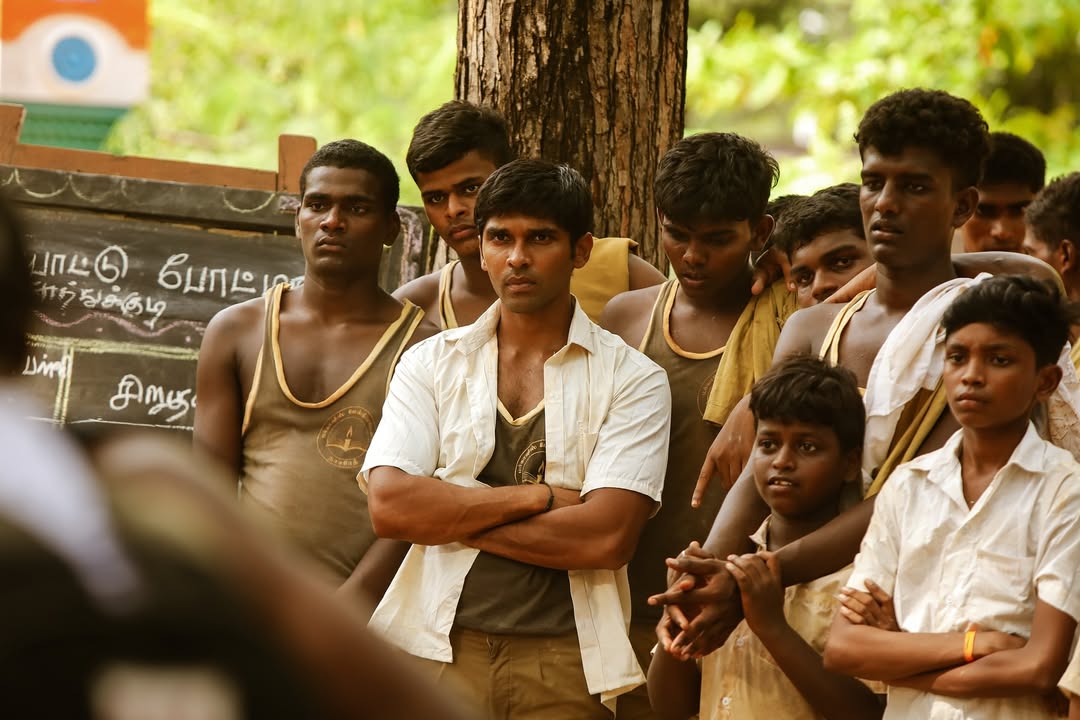
In his opening disclaimer, Mari Selvaraj states this is the story of ‘many such people who found their way out of this world’. And that’s exactly what he delivers, a heartfelt portrayal of people who fight not for glory but for passion and dignity.
2) Performances That Carry the Film on Their Shoulders
Every actor in Bison seems to know the weight of the story they’re telling, and they carry it with quiet grace and fiery intensity.
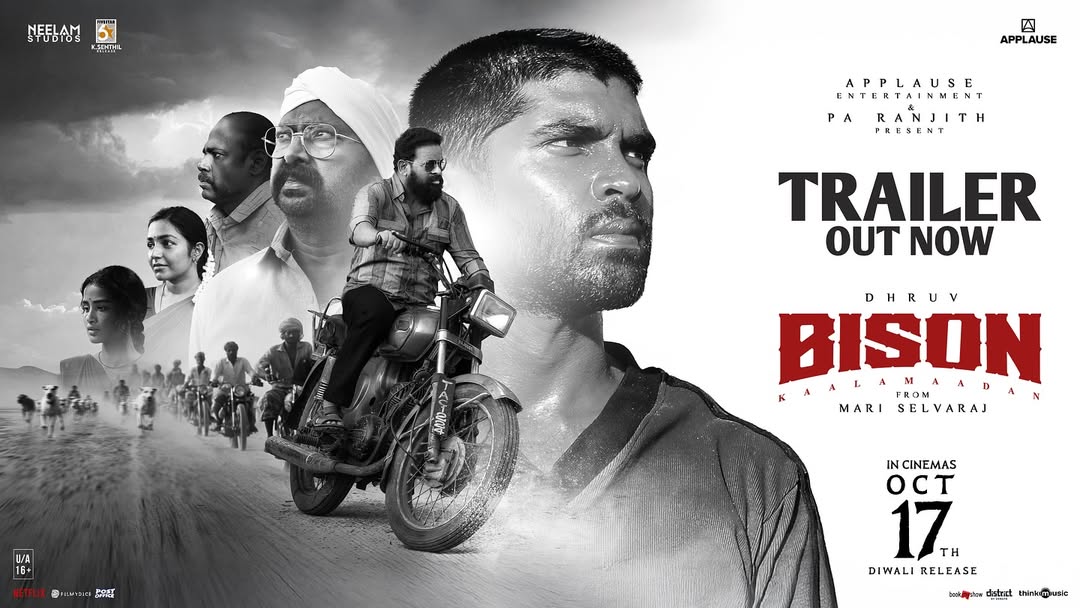
Dhruv Vikram (as Kittan), is phenomenal. Gone is the romantic hero from Adithya Varma, in Bison, Dhruv sheds all glamour. The way he transforms from a timid schoolboy to a full-fledged Kabaddi player is nothing short of astounding. His body language, silences and his eyes, filled with both rage and vulnerability, make this one of the finest performances of his young career. It felt as if Dhruv was not acting, but living as Kittan.
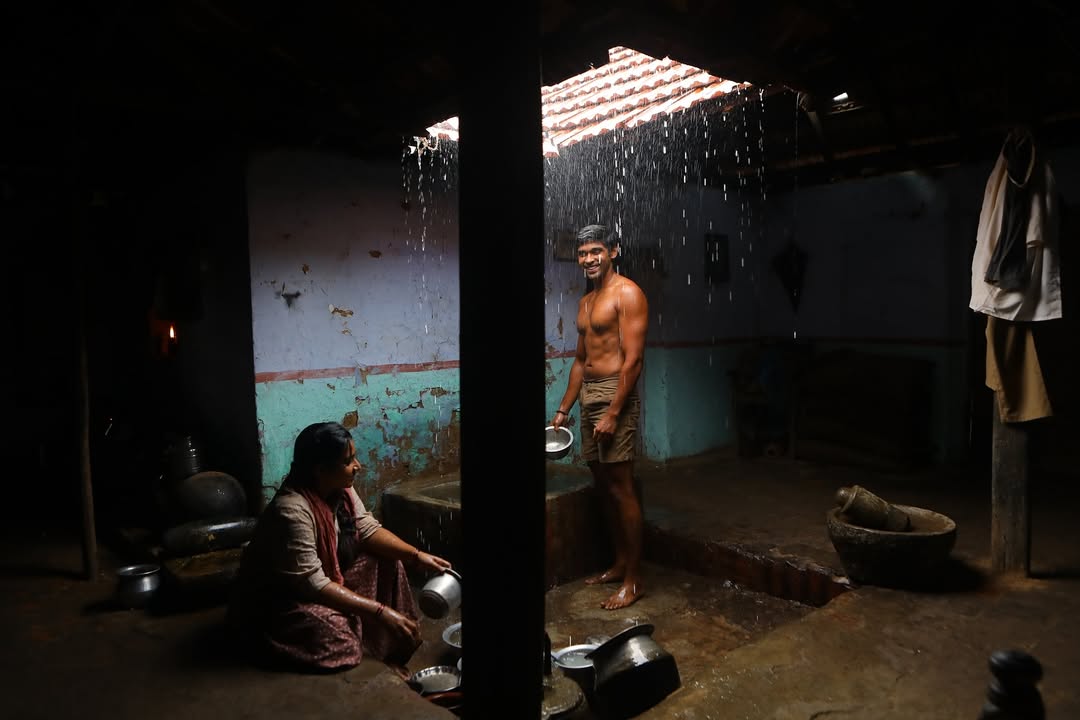
Pasupathy, meanwhile, delivers one of the most emotionally wrenching father portrayals in recent history of Tamil cinema. As the overprotective father who shields his son from violence at all costs, he’s both fierce and fragile, a performance worthy of awards.
Then there’s Lal (as Kandhasami) and Ameer (Pandiyaraja), two men trapped in cycles of power and vengeance. Mari’s casting here is spot-on. Both actors bring depths to their roles, blurring the line between villainy and tragedy.
Anupama Parameswaran (as Rani) and Rajisha Vijayan (as Raji) shine in their limited screen time. Their presences feel underused, you wish Mari had given them more space, but in the scenes they appear, they ground the story with quiet strength and authenticity.
3) The Power of Cinematography, Action and Music
Mari Selvaraj’s technical team deserves a standing ovation. Bison looks, sounds, and moves like a film made by people who know exactly what they want.
The cinematography is stunning without being showy, every shot feels lived-in. The black-and-white opening sequence sets the emotional tone, capturing grief and fear in shades of grey. Then, as we move into flashback, colour bursts through, symbolic of Kittan’s memories, his hopes, and the burning will that refuses to die.
The action scenes, particularly the Kabaddi sequences, are exhilarating. They’re not your usual ‘hero punches twenty villains’ moments. Here, every move, every fall, and every breath in the Kabaddi court carries emotion. You don’t just watch Kittan fight, you feel his emotions.
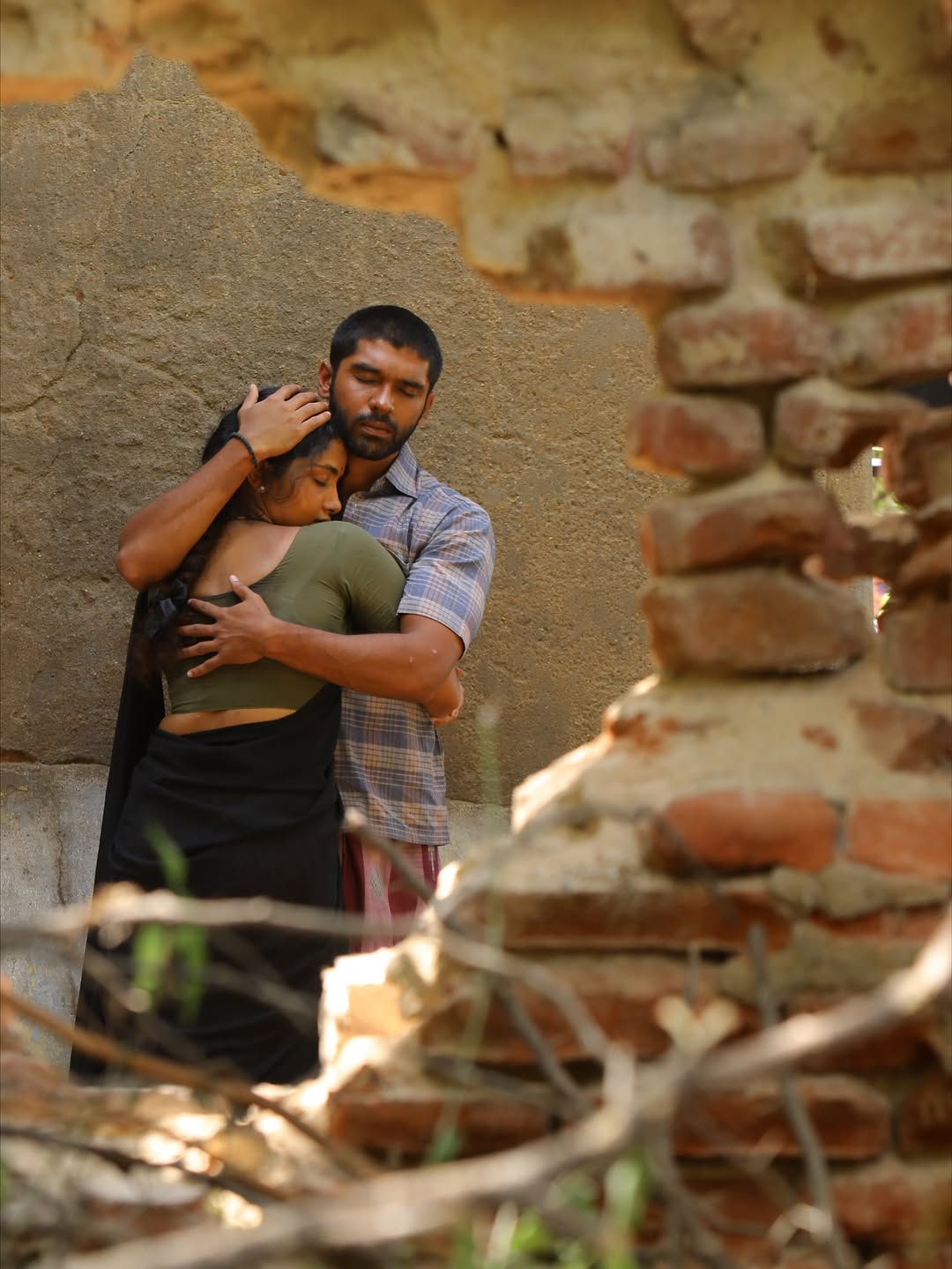
And then comes the music. Composer Nivas K. Prasanna layers folk rhythms with bass-heavy energy to create a soundscape that’s both haunting and electrifying. The background score doesn’t just accompany the story, it elevates it. There are goosebump moments where the rhythm of the Kabaddi court syncs with the rhythm of your heartbeat.
Even the editing deserves praise. The back and forth between Kittan’s past and present keeps the film engaging and mirrors his inner struggle, a reminder that even when he makes it to Japan’s national stage, his fight is far from over.
4) A Reflection on Violence, Caste, and Humanity
Yes, Bison is violent, sometimes shockingly so. Knives plunge, bodies fall, and blood fills the ground. But the violence here isn’t mindless. It’s metaphorical, emotional, and painfully real.
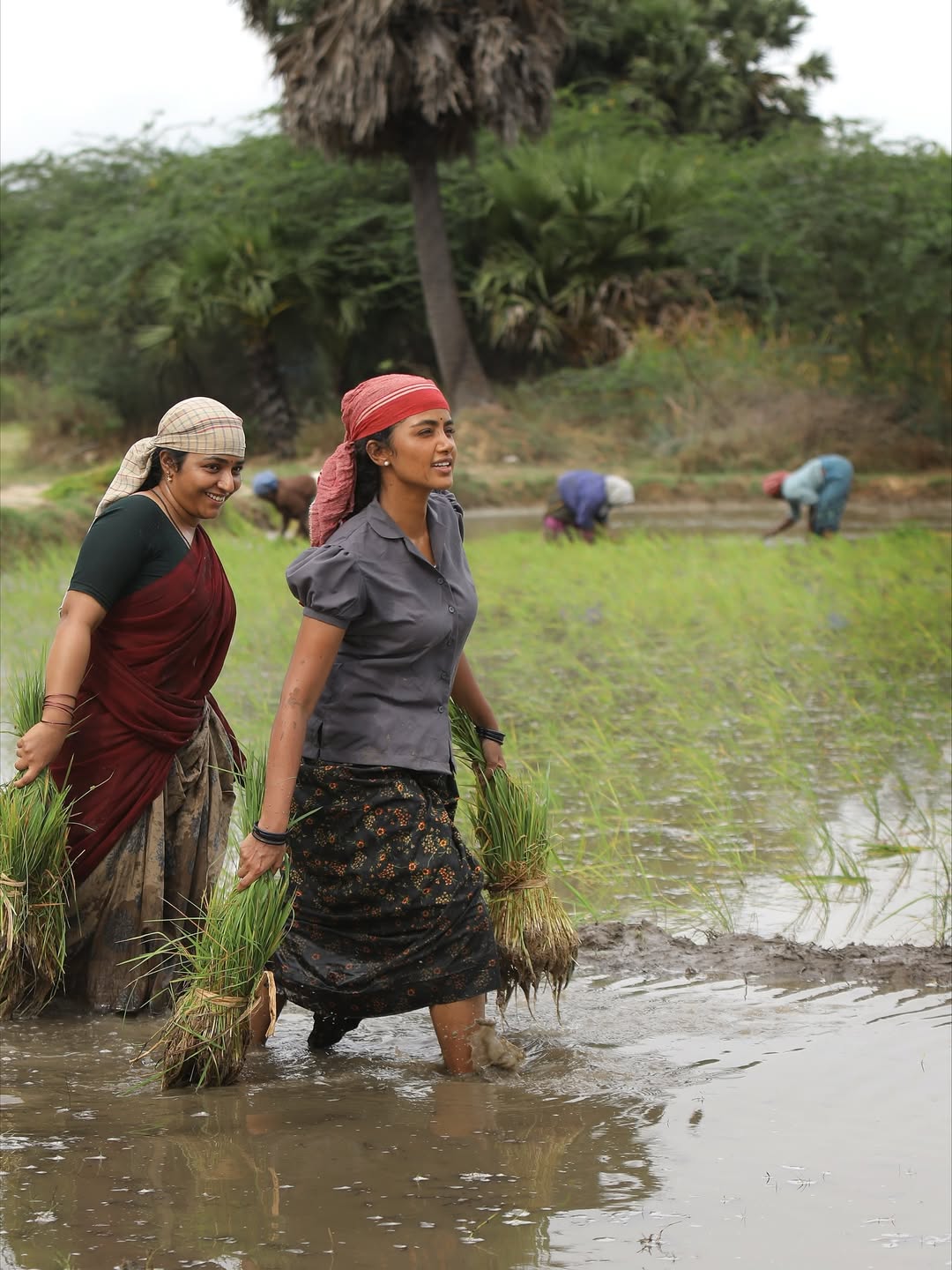
Mari uses brutality not to glorify revenge but to question it. The rivalry between Lal and Ameer’s characters becomes a mirror for how the fight for equality can, over generations, twist into vengeance. It’s tragic and thought-provoking. The dialogues pack a punch too, lines that challenge caste-based inequality or generational trauma hit hard. When Kittan says he could never prepare for the hatred that was sown generations before he was born. You feel the collective weight of a society still bleeding.
5) A Film That Holds Every Emotion
If cinema is emotion, Bison is the full spectrum. It’s a film of rage, love, sorrow and resilience. Yes, Kabaddi is it’s backbone, but beneath the sweat and soil, there’s a slight romance, heartbreak, community, and an aching tenderness between a father, a son, and a sister. There’s the sting of revenge, the quiet of hope and the satisfaction of redemption. It’s rare for a film to make you clench your fists in one scene and tear up in the next. Bison does both.
The Final Whistle
Bison Kaalamaadan is not just about Kabaddi, it’s about fighting your own fate. It’s about a family, violence, vulnerability, fear and faith. Mari Selvaraj once again proves that his storytelling lies in the space between silence and roar. And Dhruv Vikram? He is no longer just Vikram’s son, he’s a force of his own.
So, if you’re wondering whether Bison is worth watching, here’s your answer: it doesn’t just entertain, it moves you and sometimes, that’s exactly what great cinema should do.

Varnam’s Rating: 9/10
Bison Kaalamadan released worldwide on 17th October 2025, distributed in Malaysia by Veedu Production and Era Studios. Grab your tickets, bring your friends and family, and experience this must-watch film!
Follow us on Instagram, Facebook or Telegram for more updates and breaking news.


